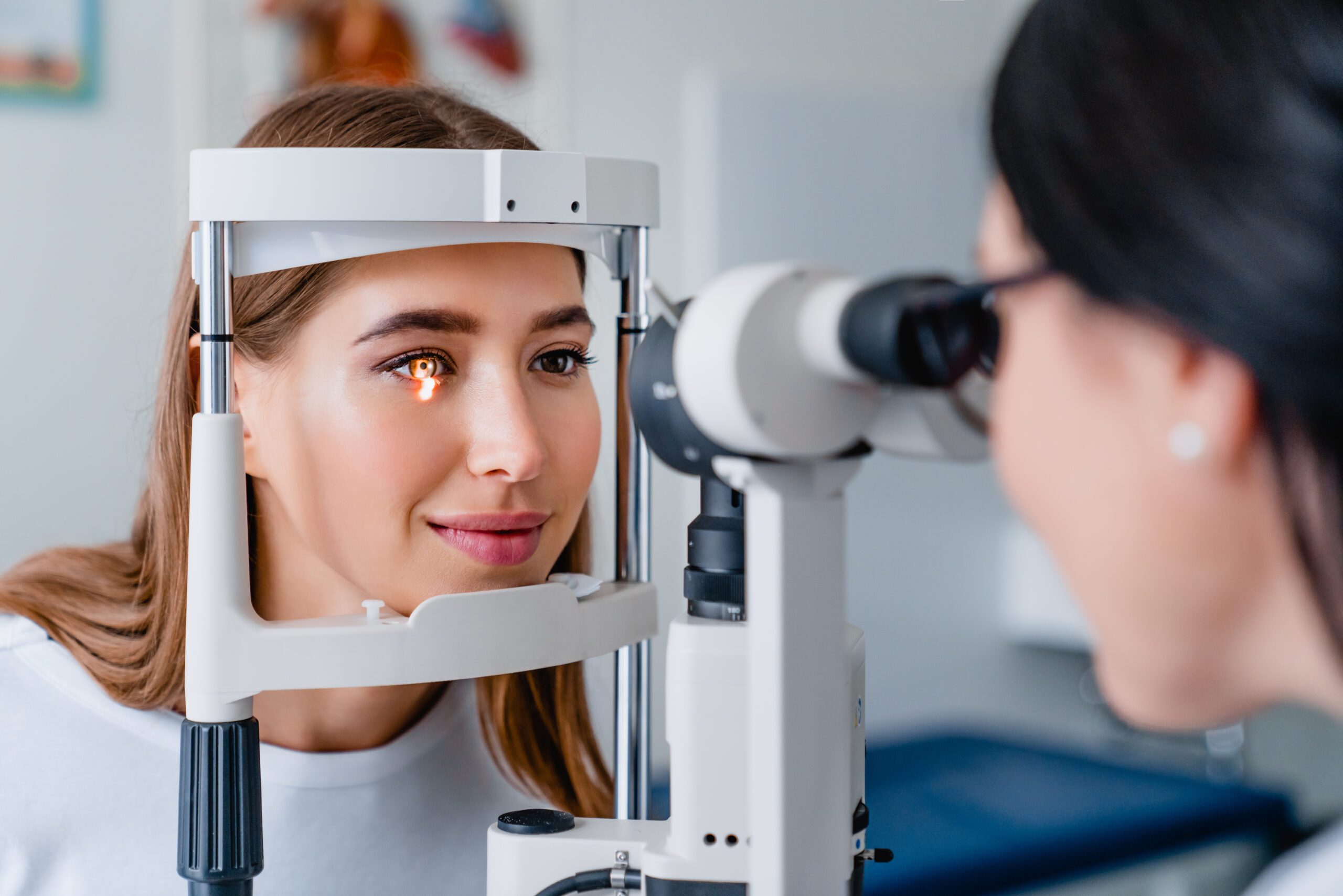I have a confession to make.
I haven’t always gone to the optician as regularly as I should, despite being a devoted contact lens wearer since I was 16.
I often forgot to book my annual eye test before realizing it had been three years since my last appointment. But I won’t do that again.
Because what I thought was just another routine checkup led to emergency surgery that saved the vision in one of my eyes.
In June, I noticed that I started seeing occasional white flashes in my right eye, particularly when looking to the side.
It didn’t happen that often, maybe once or twice a day, and although it seemed a little unusual to me, I didn’t rush to get it checked out.
I googled the symptoms – it sounded like something that can happen with age or possibly a retinal detachment.
With my 52nd birthday just around the corner, I thought nothing of it and assumed it must be another of the joys of growing old.

lose your eye
A few weeks later, as the flashes continued randomly, I realized I had lost both pairs of glasses.
Somewhat worried because I was wearing my contact lenses too often, I booked an appointment at my neighborhood optician, determined to invest in some new glasses. And I thought I’d also mention those silly white flashes at the same time.
When I went to see the optometrist, I still had no concerns.
Can’t I read any of the letters on the graph? It is not a big thing.
But I noticed that the optometrist kept coming back to my right eye, looking at it with a bright light and looking inside with a powerful magnifying glass.
He explained to me that my retina was in the process of detaching and that those flashes were a sign.
He told me that there was a possibility that the retina could detach very quickly and once this happened, nothing could be done to repair it. She would lose sight in that eye.
It was a shock.

Emergency surgery
One moment I was wishing I had new glasses and the next I was in danger of losing my sight.
The optometrist called the hospital and arranged an emergency appointment. They told me they had to have surgery the next day.
My mind was racing. Everything was very difficult to process.
If it didn’t work, how would I deal with it? Could I still work and read? Faced with the prospect of losing sight in that eye, the vision I had always taken for granted suddenly seemed incredibly precious.
The operation took about 40 minutes and I was in and out of the hospital within a few hours.
I had to spend the next week lying on my side and then had to wait until my vision was normal again.
In the end all that took me about three months. I felt disoriented and unable to go out for the first six weeks or so.
But as my vision improved, so did my confidence in getting back on my feet and going for walks.
The main thing is that my vision returned.
The only thing I can think about now is how lucky I am. How lucky I went to the optician when I did and they were able to intervene so quickly.

What is a retinal detachment?
The UK’s National Health Service (NHS) says that when the retina, a thin layer at the back of the eye, detaches, it should be treated quickly.
Symptoms of a retinal detachment include:
- Points and lines that “float” or flashes of light in the eye
- A dark “curtain” or shadow in your vision
- Vision changes, such as blurred vision
The NHS says surgery will usually stop vision deterioration and “most people can return to all their normal activities”.

In Wales, the government has now launched a campaign to encourage people to have their eye health checked.
From October, optometrists in optical shops will be able to treat and manage a wider variety of eye diseases.
The aim is to help relieve pressure on hospital eye services and reduce waiting times and increased demand for eye care.
It means patients should be able to have an eye exam quicker, more conveniently and closer to home.
The main change has to do with the prescriptions. Optometrists who have gained additional qualifications will be able to prescribe medications, such as steroids and antibiotics, used to treat common eye conditions such as uveitis and conjunctivitis.
Vision tests can also identify more serious health conditions, such as diabetes, glaucoma, and nearsightedness.
If people have regular eye checks, it is hoped that they can be detected earlier and prevented.
Keep reading:
* 4 tips to deal with visual fatigue caused by screens
* What causes sudden blurred vision disorder and how to fix it
* 8 tips to avoid eye strain

Remember that you can receive notifications from BBC News Mundo. Download the latest version of our app and activate them so you don’t miss our best content.
Do you already know our YouTube channel? Subscribe!
